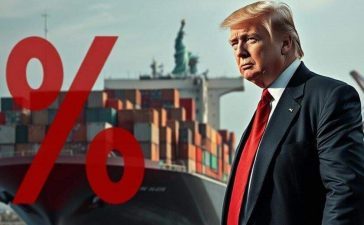Unlock the Editor’s Digest for free
Roula Khalaf, Editor of the FT, selects her favourite stories in this weekly newsletter.
An abrupt turn of events has bought yet more time for China Evergrande Group. A Hong Kong judge has postponed a court hearing into a liquidation petition until January. That gives the embattled property developer longer to finalise a debt restructuring plan.
Offshore creditors, such as petitioner Top Shine Global, may not realise quite how much power they now wield over China’s property and banking sector.
Evergrande is the world’s most indebted developer. It has been working for about two years on a debt restructuring it hopes will stave off liquidation. Fresh breathing space lifted battered shares more than 9 per cent on Monday.
Offshore creditors have shown little enthusiasm for the debt restructuring proposals. One cannot blame them. A brutal haircut is a likely outcome. Beyond that, prospects for the developer look bleak.
The payouts from a court-approved liquidation are hardly appealing either. Analysts anticipate a recovery rate of below 5 per cent. Evergrande has more than $300bn in liabilities.
For Beijing however, getting offshore creditors to agree to a restructuring is of paramount importance.
The biggest risk comes from an estimated 1.5mn homebuyers that have already paid Evergrande for unfinished homes. These dwellings are estimated to have an original value of $90bn. Beijing may have to cope with social discontent if Evergrande is liquidated and the projects cannot be completed.
A restructuring would also alleviate pressure to support state-owned banks. Their returns are eroding amid slowing economic growth and a falling property market.
The impact on lenders is growing. Banks do not just have direct exposure through mortgages and loans to developers. They are also exposed to the country’s shadow banks. These non-bank financial institutions often lend to higher-risk industries such as real estate. The financings are frequently through wealth management products that are held off balance sheet.
Zhongzhi, one of the biggest shadow banks, may have a shortfall of $36bn. It has warned that it is “severely insolvent”.
The liquidation of Evergrande would set a dangerous precedent for struggling peers. Evergrande had always been outlier. But a domino standing at the extreme end of a line tumbles most peers through indirect impacts. Foreign investors have yet to comprehend the full extent of that danger.
If you are a subscriber and would like to receive alerts when Lex articles are published, just click the button “Add to myFT”, which appears at the top of this page above the headline.











